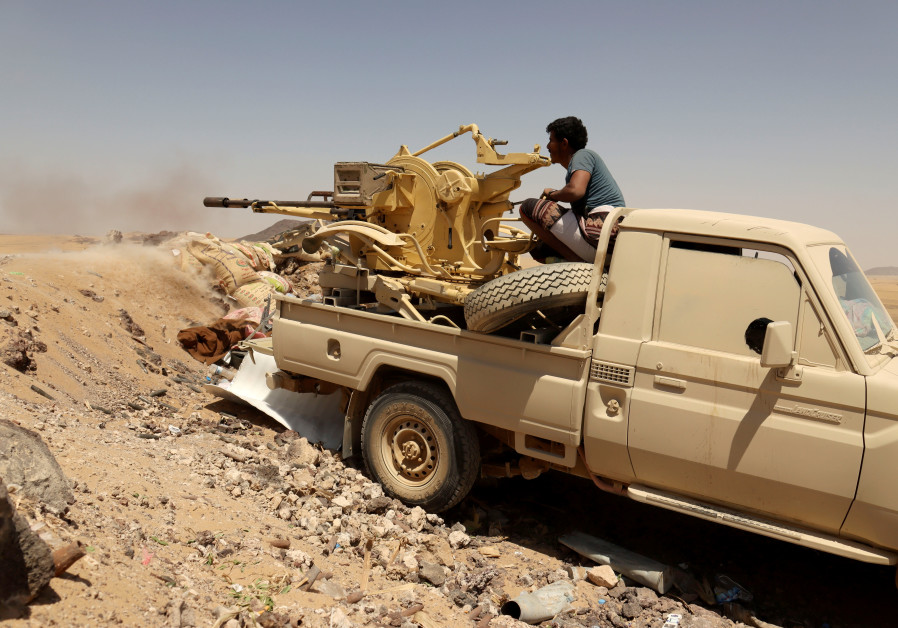THE ROME SUMMIT AND THE FUTURE OF SYRIA
For more stories from The Media Line go to themedialine.org
Secretary Blinken addressed this issue directly when he announced that he would personally attend the talks at the UN to ensure that the crossing stays open. This position is in line with the overall approach of the Biden administration, which seeks to restore America’s moral leadership on key issues around the globe. In the past few months, the Biden administration kept silent about its stance on Syria. Many observers interpreted this silence as a lack of interest. However, the Rome Summit tells a different story that positions Syria at the top of the US foreign policy agenda.
The Rome meeting is important in that it’s the first international meeting to discuss the Syrian issue after years of American neglect. As for those in Syria who are more pessimistic, the prevalent sentiment is that the meeting won’t offer any tangible progress toward a political solution. They fear that the meeting will lead to more empty promises about the necessity of a ceasefire and a de-escalation of the violence. These words have become empty statements with no real impact on the ground.
–Dr. Riad Na’asan Agha
Every nation has defining moments that shape its fate and destiny. For Egypt, July 3, 2013 was one of those moments. On that day the Egyptian army, led by Abdel Fattah al-Sisi, managed to salvage Egypt from the rule of the Muslim Brotherhood; a terrorist gang that sought to destroy everything civilized about our country in order to wreak havoc and strengthen itself at the expense of the Egyptian people.
When President Sisi brought an end to the rule of Mohamed Morsi, and announced that the Supreme Constitutional Court would manage the country’s affairs until early presidential elections could be held, joyful celebrations erupted across Egypt. The Egyptian people took to the streets and began chanting, singing and dancing. They filled up the public squares and the sidewalks. They felt as if Egypt were reborn. They knew that their country could restore its civilization, freedom, prestige, strength and respect.
The year in which the Brotherhood ruled Egypt was a dark year for our country. It became clear to everyone that the Brotherhood seized power and acted as though it would remain in power for hundreds of years. The Brotherhood revealed its true face to the Egyptian people. It made it clear that it would betray all morals or values for the sake of power. We also must not overlook the role of Egyptian women, who rose up to preserve their rights that the Brotherhood repeatedly sought to eliminate.
–Marwa Altobji
In an unsurprising turn of events, the Houthis once again rejected the ceasefire in Yemen and turned down the Saudi peace initiative. Their position has always been the same: Reject any political settlement or dialogue that may end the fighting and bloodshed in the country. To be clear, this decision isn’t made by the Houthis; rather, it’s dictated to them by the mullahs in Tehran.
The Houthis have no choice but to carry out these directives. The Houthis don’t care about the destruction they brought about Yemen, the death of innocent civilians, and the widespread starvation that has struck the country. Their one and only concern is their need to please their masters in Iran. And it doesn’t stop there. The Houthis are interested in wreaking havoc in places other than Yemen. Their violence and aggression extend abroad to Saudi Arabia, which has been targeted by Houthi missiles and cross-border attacks.
–Khalid Bin Hamad Al-Malik

What happened in the Tunisian Parliament last week is infuriating. A member of parliament named Sahbi Samara suddenly jumped out of his seat. Walking in confidence, he headed directly toward his colleague and head of the Free Constitutional Party, Ms. Abeer Moussa. He walked a few more steps and then slapped her hard. Another deputy named Seifeddine Makhlouf, who apparently did not like Samara’s “tolerance,” completed the task by kicking Moussa on her knee. There was a bit of mayhem, but the parliament didn’t stop its work. Business simply continued as normal.
This provocation is compounded by two factors. First: it is Tunisia, the only country whose revolution was able to achieve relative success. One of the fruits of that revolution was the ratification, in 2017, of Law No. 58 to combat violence against women and strive to achieve gender equality. Second: it took place in the parliament – that is, the place that is supposed to reflect gender equality and good citizenship. But Mr. Samara and Mr. Makhlouf wanted to turn this parliament into another space where women obey the order of men. Today, this audacity to attack women takes many forms elsewhere in our region.
Take Turkey, for example. A few months ago, President Recep Tayyip Erdogan decided to take his country out of the “Istanbul Convention,” which aims to protect women from violence. By now, Turkey has officially withdrawn from the treaty. The arguments put forward by defenders of withdrawal are strange: “The agreement supports homosexuality and contributes to the dismantling of the family and society.” Turkey, which has witnessed in recent years a noticeable increase in violence against women, will certainly witness a greater increase after the removal of this restriction.
News of abuse of women has proliferated around us and takes many forms. Recently in Iran’s presidential elections, 40 out of 40 women candidates were rejected. All of them were rejected, without exception. It may be said that men did not have the best luck, the evidence being that about 590 of them were also rejected. Nevertheless, seven men were allowed to run for office, and one of them, Ebrahim Raisi, won the presidency.
–Hazem Saghieh
